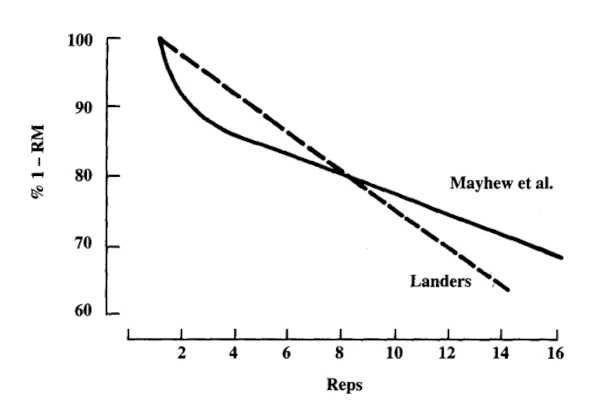The Mayhew 1RM Formula
The Mayhew formula, introduced by Jerry L. Mayhew and colleagues in 1992, provides a reliable method for estimating your one-rep max (1RM) for bench press using submaximal lifts. This guide details the formula’s origins, mechanics, and role in strength training, drawing from verified sources.
Jerry L. Mayhew: Exercise Science Professor

Jerry L. Mayhew, PhD, is a Professor of Exercise Science at Truman State University in Kirksville, Missouri (formerly Northeast Missouri State University). With a doctorate in Exercise Physiology from the University of Illinois, Mayhew has authored over 200 peer-reviewed publications on 1RM prediction, muscle physiology, and athletic performance. His work includes studies like “A comparison of linear and daily undulating periodized programs with equated volume and intensity for strength”. His development of the Mayhew formula was a result of his focus on safe and accurate strength assessment, and was influenced by both academic research and coaching practices.
Origin
In 1992, Jerry L. Mayhew, Thomas E. Ball, Micheal D. Arnold, and Jack C. Bowen published a paper titled “Relative Muscular Endurance Performance as a Predictor of Bench Press Strength in College Men and Women” in the Journal of Applied Sport Science Research. Conducted at Northeast Missouri State University, the study tested 184 men and 251 women enrolled in a 14-week fitness course to determine if relative muscular endurance could predict 1RM bench press strength. Subjects performed a 1RM test followed by a submaximal lift at 55–95% of their 1RM, completing as many repetitions as possible in one minute. The study found no significant gender differences in the relationship between repetitions and percent 1RM, leading to a combined exponential equation with high accuracy (r = 0.98, standard error ±4.8 kg). The formula addressed safety concerns by avoiding maximal lifts, which require intense mental preparation and pose injury risks, especially for novices. The original paper can be found here.
The Mayhew Formula
The Mayhew formula calculates 1RM with the equation:
1RM = (100 × weight) / (52.2 + 41.9 × e-0.055 × reps)
Where:
- weight is the amount lifted
- reps is the number of repetitions performed
- e is the base of the natural logarithm (approximately 2.71828)
For example, lifting 100 kg for 5 repetitions yields:
1. Calculate e-0.055 × 5 = e-0.275 ≈ 0.7596
2. Then, 52.2 + 41.9 × 0.7596 ≈ 52.2 + 31.82 ≈ 84.02
3. Finally, 1RM = (100 × 100) / 84.02 ≈ 119.0 kg
The formula’s exponential design models the non-linear relationship between repetitions and weight, making it effective for 2 - 15 repetitions, particularly for bench press.
Development of the Formula
Mayhew and his team developed the formula by analyzing data from 435 college students (184 men, 251 women) after a 14-week resistance training program. The study measured 1RM bench press strength and submaximal lifts at 55–95% of 1RM, with subjects performing repetitions to fatigue within one minute. Regression analysis revealed an exponential relationship between repetitions and percent 1RM, consistent across genders, leading to the Mayhew formula. The formula was designed to provide a safe alternative to maximal lifts, reducing injury risks and time demands.
Validation and Accuracy
The 1992 study validated the formula across diverse groups, including 70 men and 101 women from a subsequent fitness course, 25 high school male athletes and 74 nonathletes, and 56 college football players. A 2007 study found it reliable for bench press, particularly for 10 or fewer repetitions, but noted higher errors for leg press and triceps extension compared to the Landers formula. The Mayhew formula outperforms Landers for most exercises, offering better accuracy and similarity to actual 1RM, especially for bench press.

Comparison of Mayhew and Landers formulas
Mayhew’s Impact
The Mayhew formula is widely used in strength training due to its accuracy across a wide range of repetitions and exercises. Jerry L. Mayhew’s extensive research, with over 200 publications, has shaped modern strength assessment practices. His work at Truman State University continues to influence coaches and athletes, promoting safe and effective training methods.
Ready to estimate your 1RM with the Mayhew formula? Use our 1RM Calculator, explore more Fitness Guides, or Suggest New Tools to enhance MaxCalculator.com.